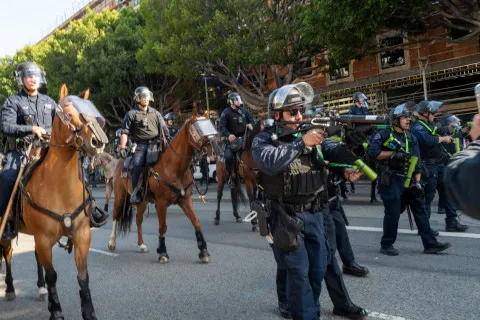In a shocking turn of events, reports suggest that former President Donald Trump granted Elon Musk access to highly classified war plans related to a possible military conflict with China. If true, this revelation raises serious concerns about national security and the safeguarding of sensitive military information. The idea that a private citizen—who is not a government official or a member of the military—could be given access to such critical intelligence is alarming. It also brings into question the protocols in place for handling top-secret materials and whether they were breached in this instance.
One of the most troubling aspects of this claim is that Musk does not possess the level of security clearance required to view such sensitive documents. Top-secret war plans are highly restricted, and access is usually granted only to individuals with the highest level of clearance, after rigorous background checks. However, it is alleged that Musk was explicitly advised not to apply for security clearance due to his history of drug use and his reported connections with Russian President Vladimir Putin and the Chinese government. If this information is accurate, it suggests that the usual vetting processes may have been ignored or circumvented.
Musk’s deep involvement in global affairs and his business dealings in China add another layer of complexity to this controversy. As the CEO of Tesla, which has extensive operations in China, and the owner of SpaceX, a company with significant defense contracts, his access to U.S. military plans could pose a potential conflict of interest. Additionally, his reported ties with foreign leaders raise questions about whether sharing such information with him could compromise national security. Given these concerns, experts and lawmakers are likely to call for an investigation into how and why Musk allegedly received access to classified military intelligence.
This situation also highlights ongoing concerns about Trump’s handling of classified information. During his presidency, there were multiple instances where he was accused of being careless with state secrets, and this latest claim—if verified—would further fuel those criticisms. The broader implications of this revelation could be significant, particularly as Trump remains a key political figure and is expected to play a major role in future elections. His interactions with influential business leaders like Musk add another dimension to the debate over whether sensitive government information is being shared irresponsibly.
As this story unfolds, the public will be watching closely to see how government officials respond and whether any legal consequences will follow. If true, the implications could be far-reaching, potentially affecting U.S. relations with China and other global powers. Transparency and accountability will be critical in addressing these concerns, as the nation grapples with the potential risks of classified information falling into the wrong hands.



